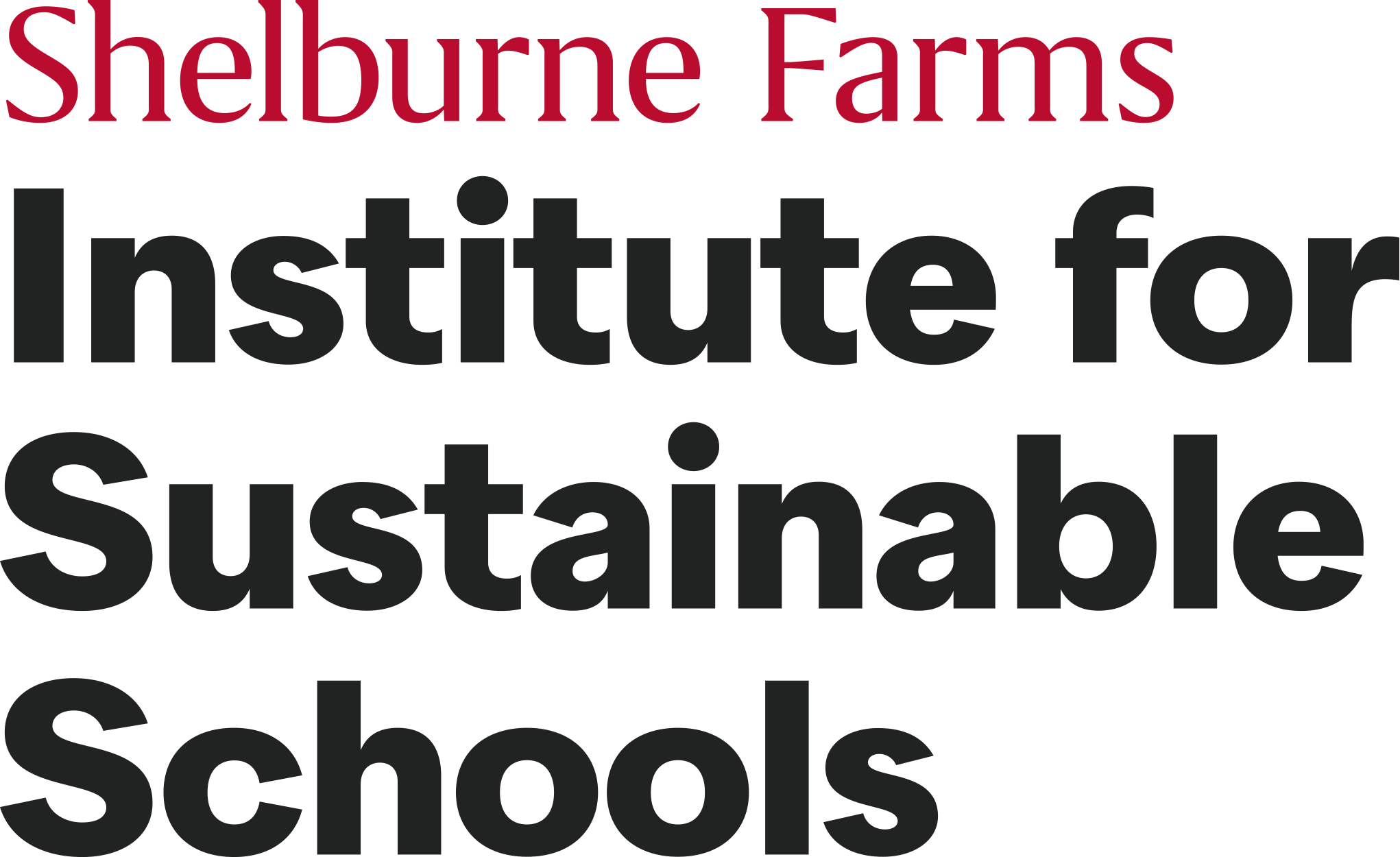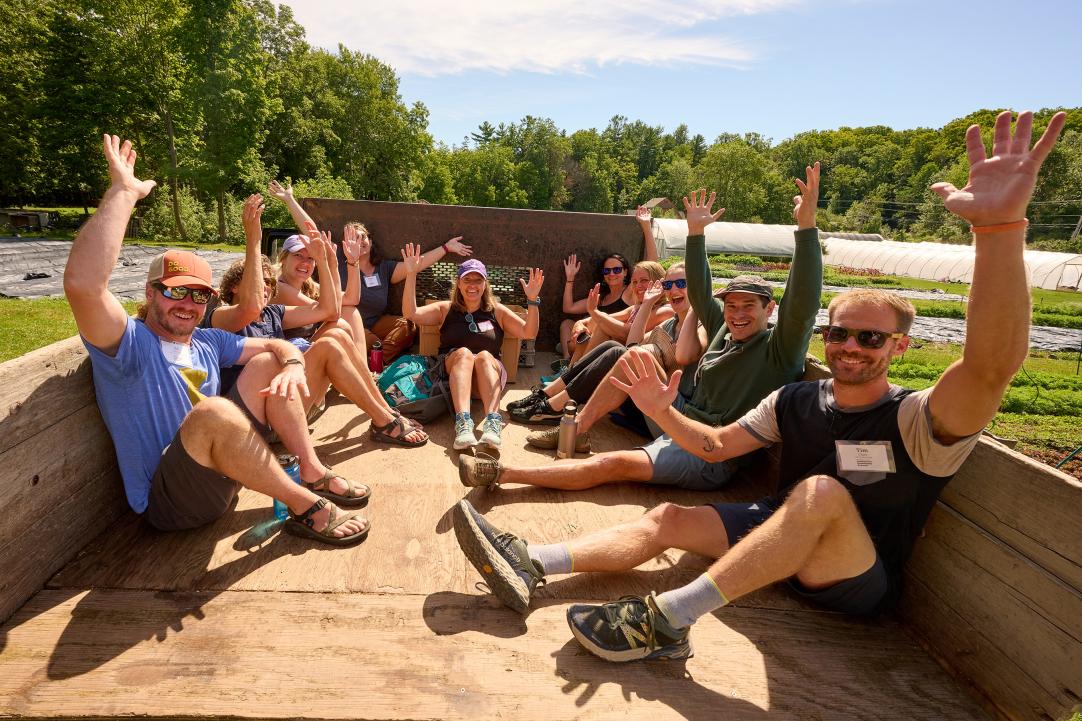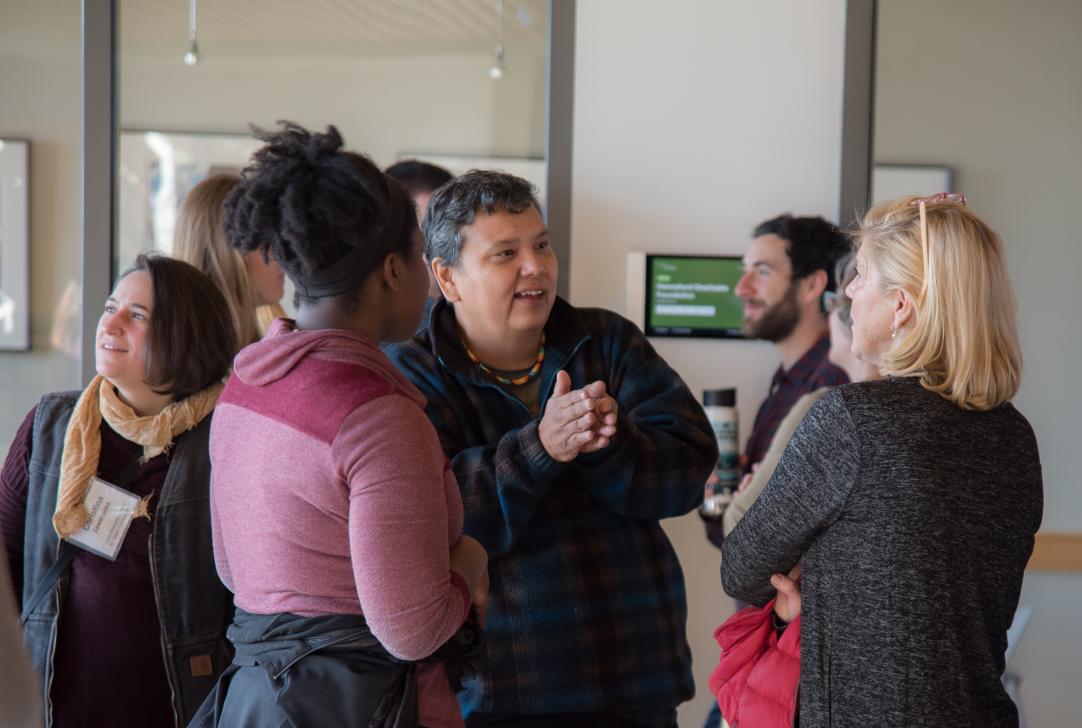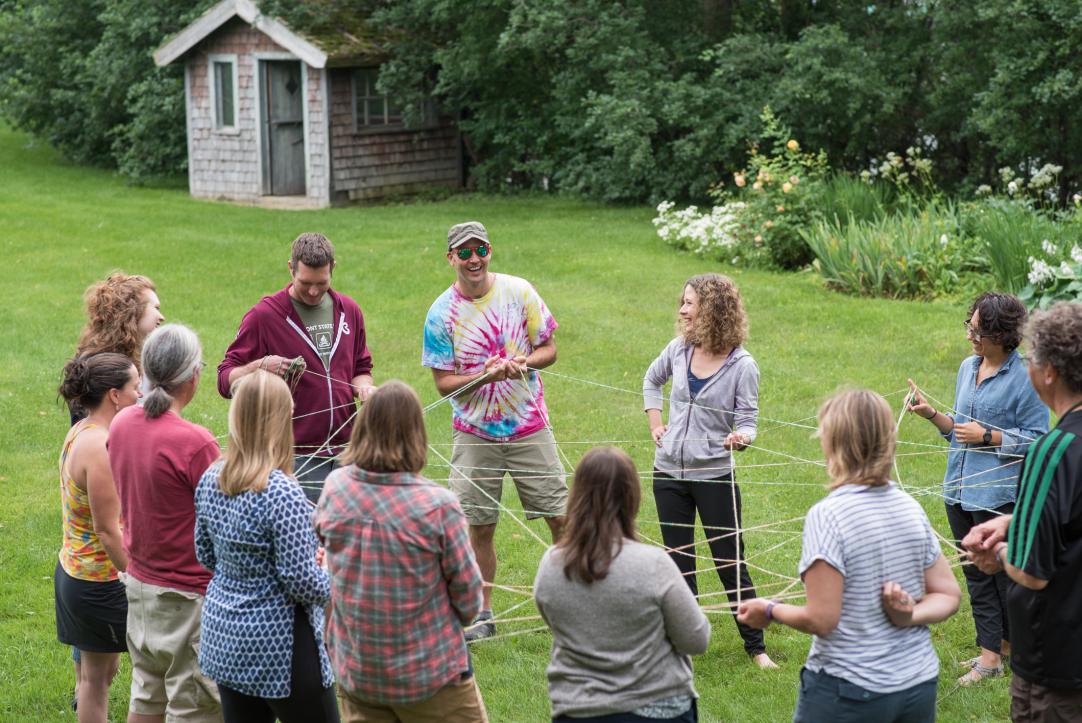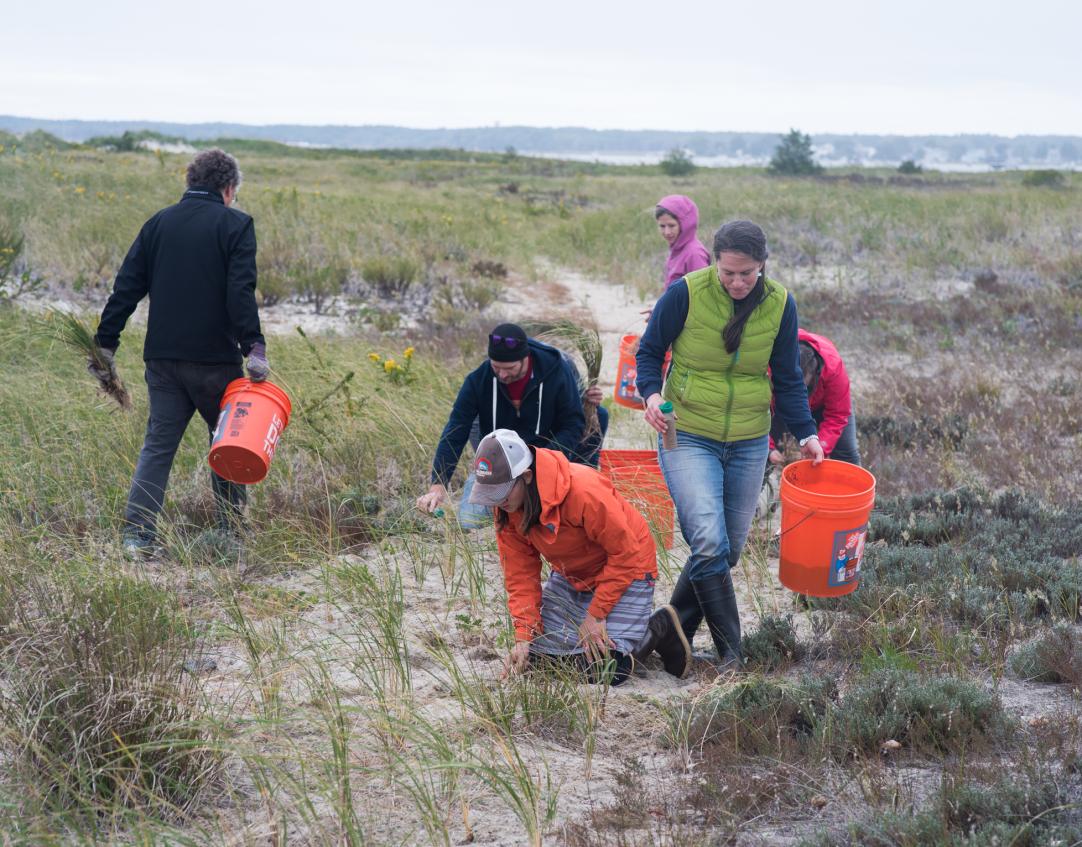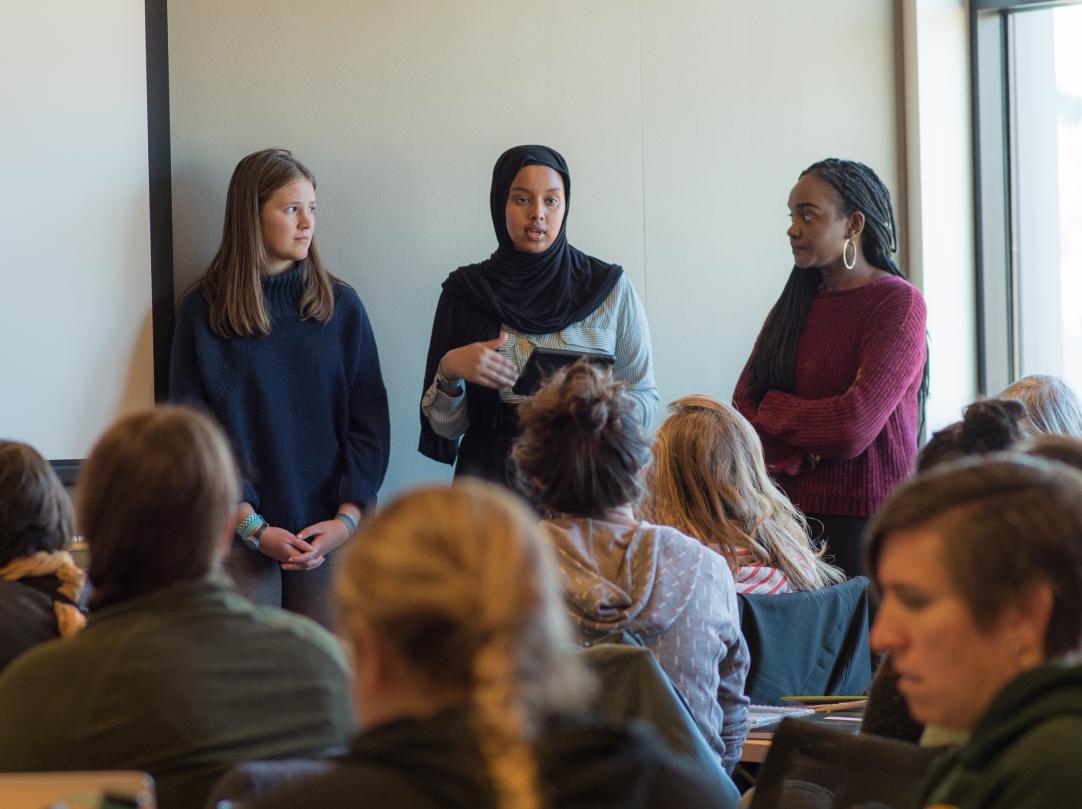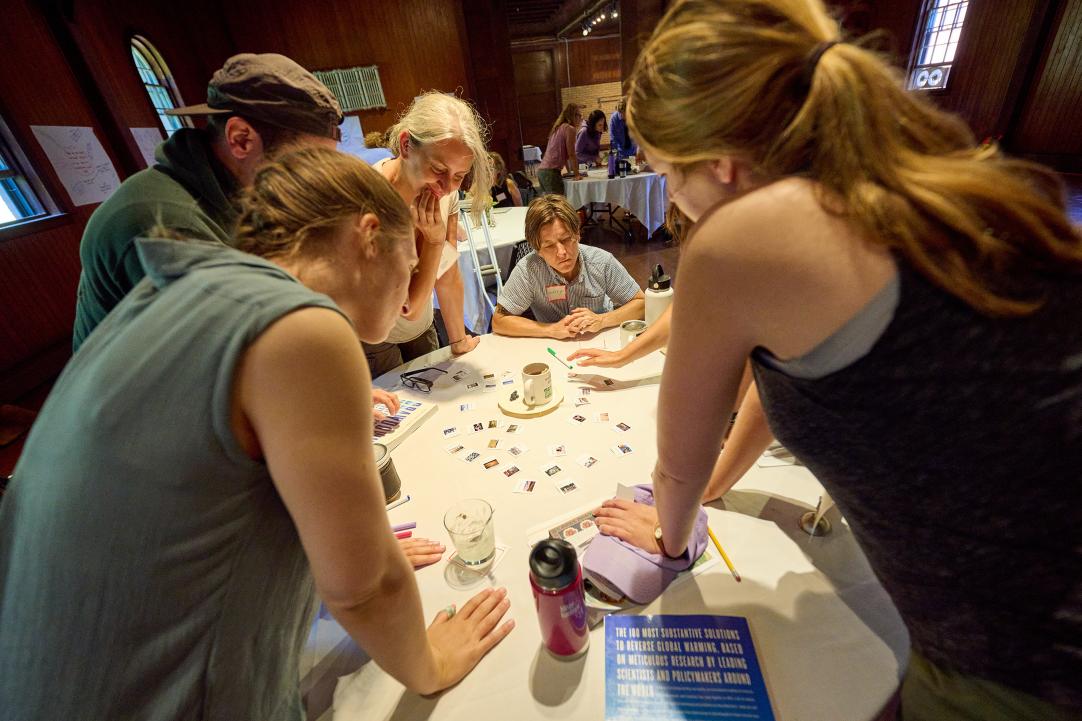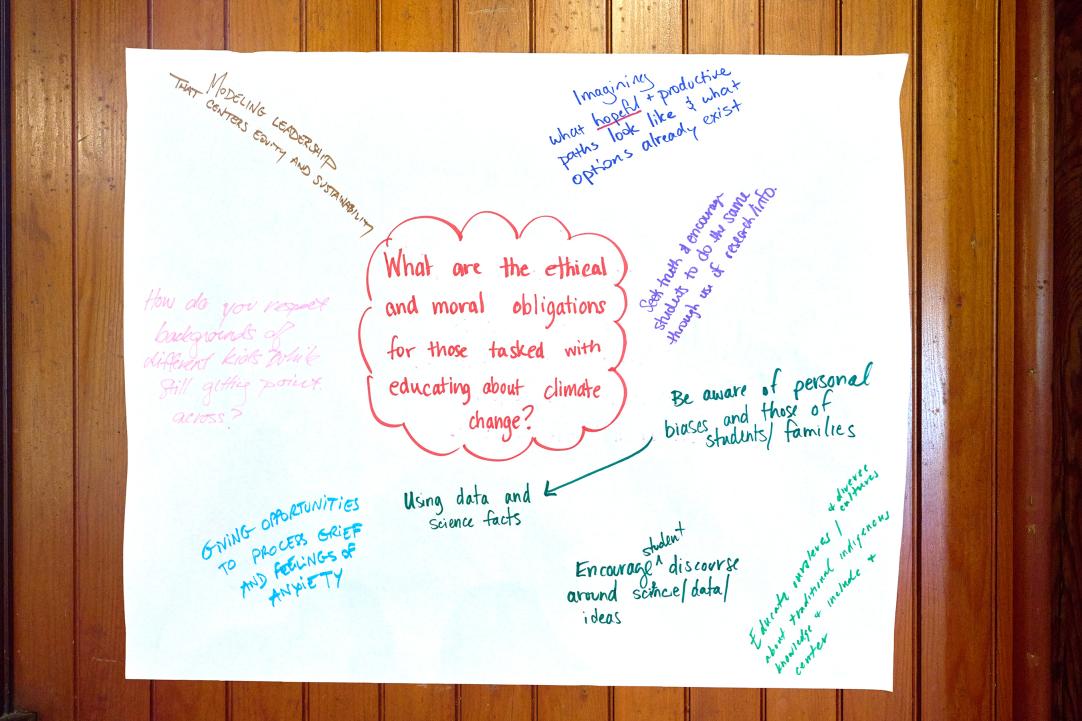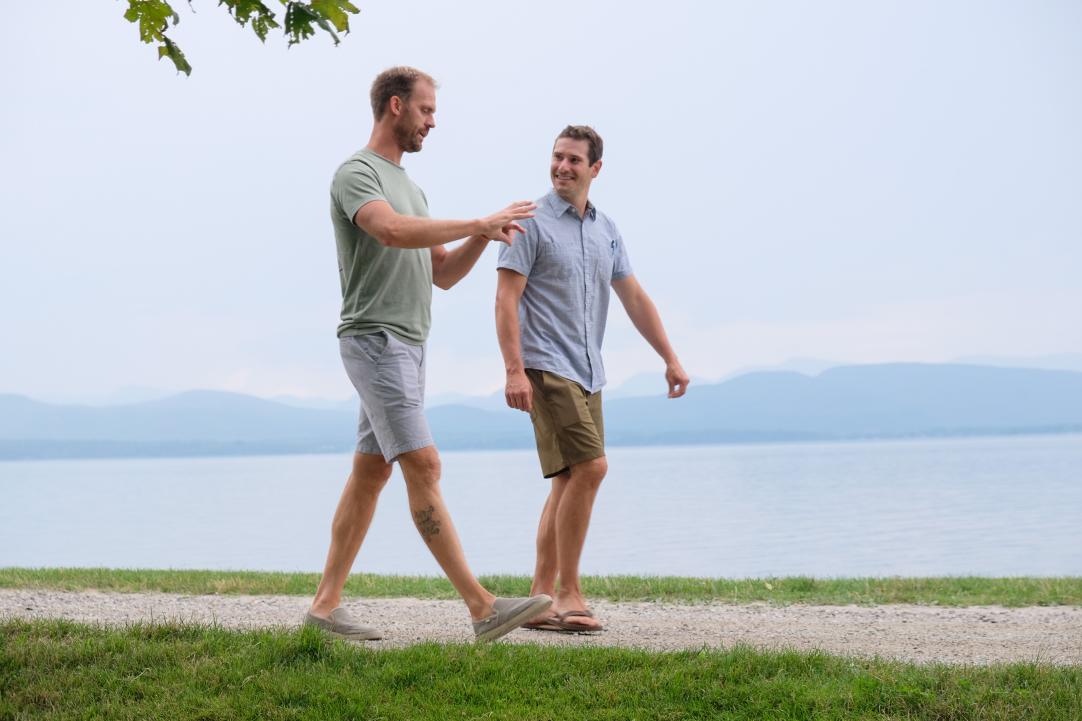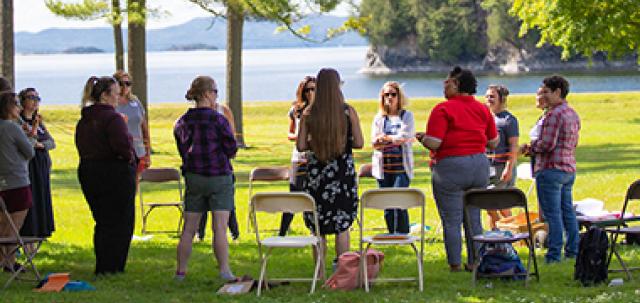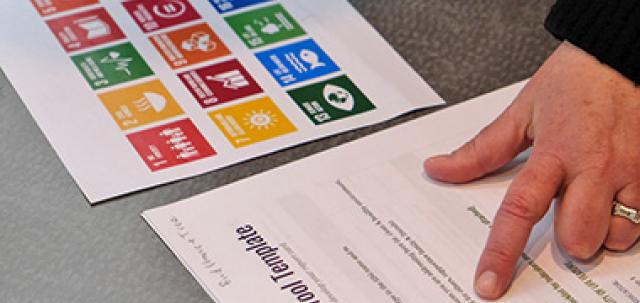The Climate Resiliency Fellowship is a year-long professional learning opportunity for teachers in the northeast committed to learning, teaching, and taking action for the climate through interdisciplinary and place-based approaches. We choose to engage with the realities of climate change with hope and justice, while tending to individual and collective well-being.
We’ll work together to create authentic educational experiences shaped by youth interest and voice. During our seasonal in-person and virtual gatherings, we will explore climate change education through research, practice, and solutions-based approaches. Individual participants and teams are supported throughout the year by the cohort of educators, program facilitators, and Northeast Climate Change Education Collaborative partners.
We typically offer the Climate Resiliency Fellowship every other year, and plan to welcome our next cohort in 2024. Share your information with us to express your interest and be notified when applications open in 2024.
What You'll Learn
The Climate Resiliency Fellowship Program will:
- Provide middle and high school classroom teachers with climate change education subject matter content relevant to their grade levels.
- Engage middle and high school classroom teachers with pedagogy and research-based instructional practices for climate change education and action.
- Support development of confidence in teaching about climate change and for climate action.
- Emphasizes the importance of youth voice and working in partnership with students for climate solutions.
- Establish a cohort of formal and informal educators working together across the northeast region for climate change education, agency, and collective action.
- Create space to nourish well-being, hope and justice within climate change education.
Climate Resiliency Fellows:
- Increase knowledge of climate change science and education.
- Increase confidence teaching climate change education.
- Develop practice with transdisciplinary teaching approaches; place-based education; climate change action education; and incorporating youth voice and agency.
- Implement new or enhance existing climate change education curricula.
- Implement school or community-based action projects in partnership with others for solution-oriented climate change education.
- Engage in transformative reflective learning practice through self evaluation, collecting evidence of learning, and application.
- Give and receive feedback with peers and facilitators through review of learning artifacts, discussion, and facilitated protocols.
- Document learning, transfer of learning, and application through reflective writing, action plan drafts, systems map creation and revision, and shared presentations.
- Increase network connections among formal educators and between formal and informal community education partners.
- Inform program design and facilitation through formal and informal reflection, feedback, and evaluation.
Meet the Core Instructor
Aimee Arandia Østensen, Professional Learning Facilitator, Shelburne Farms Institute for Sustainable Schools
Program Overview
This program kicks off in August with an in-person summer gathering; reconvenes in the fall for a regional in-person gathering; and culminates with a spring in-person celebration in April. Teacher participants reflect and grow their practice with climate change education throughout the school year. Two virtual check-ins in the winter keep the cohort engaged with each other and offer continued support as teachers apply learning to practice and implement projects with students.
Click on each season to expand details.
The summer gathering provides a variety of foundational content on climate change and climate change education accessible to teachers of all subjects presented through diverse pedagogy. The summer gathering emphasizes well-being along with hands-on learning and practice, time for reflection, integration, and time to work on implementation plans. A majority of the time will be spent outdoors in our forest and farm lands bordering Lake Champlain here at Shelburne Farms along with local food, beautiful scenery, engaging company, and time for restorative practices.
The fall gathering builds on content knowledge and implementation plans created at the summer gathering, with the opportunity for peer feedback consultancies.
Virtual check-in sessions occur over the winter months to address emerging needs and questions, and offer support during implementation of classroom curricula and action projects.
The culminating spring gathering will be scheduled with the input of the participants. We will reconvene to celebrate our efforts and share our successes with climate change education and our service learning action projects.
Application Details
We typically offer the Climate Resiliency Fellowship every other year, and plan to welcome our next cohort in 2024. Share your information with us to express your interest and be notified when applications open in 2024.
Educators may apply to attend as either individual participants or school teams of two to work together to design and implement climate change curriculum and projects back at school. The Fellowship is suited for educators working with students in any discipline in grades 6-12 teaching in the northeast. A background in climate science or climate change education is not required. This program is designed to offer ample time and opportunities for personalized learning, especially for those who wish to delve deeper into specific areas.
Scholarships may be available for our programs on a need-based scale. Please fill out the scholarship application prior to registering for a program. For any questions about scholarships, email registration@shelburnefarms.org.
Create Your Learning Pathway
These year-long programs are offered alternating years and have an emphasis on education to inspire climate action:
- A Forest for Every Classroom, designed to support Vermont K–12 educators in translating climate change, equity, and other sustainability concepts from the Land into your curriculum
- A Watershed for Every Classroom, for K–12 educators in the Lake Champlain Basin of Vermont, New York, and Quebec
Education for Sustainability is an approach that empowers students to strive for, and thrive in, a more sustainable future, learning that links knowledge, inquiry, and action so students can create positive change now and carry this activism into their adult lives. To grow your knowledge, take our series of three EFS-focused courses:
- First, Foundations in EFS;
- Second, Immersion in EFS; and
- EFS Leadership Academy third.
Or, take all of these classes within the Education for Sustainability Graduate Certificate.
Interested in graduate credit? Some of our programs, including the Climate Resiliency Fellowship, are typically offered for optional credits for an additional fee. Contact us to learn more.

